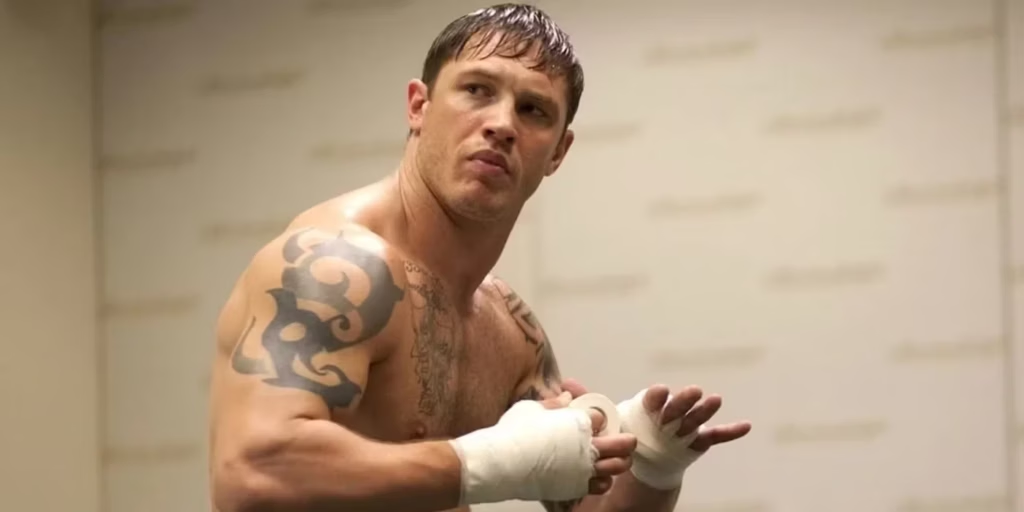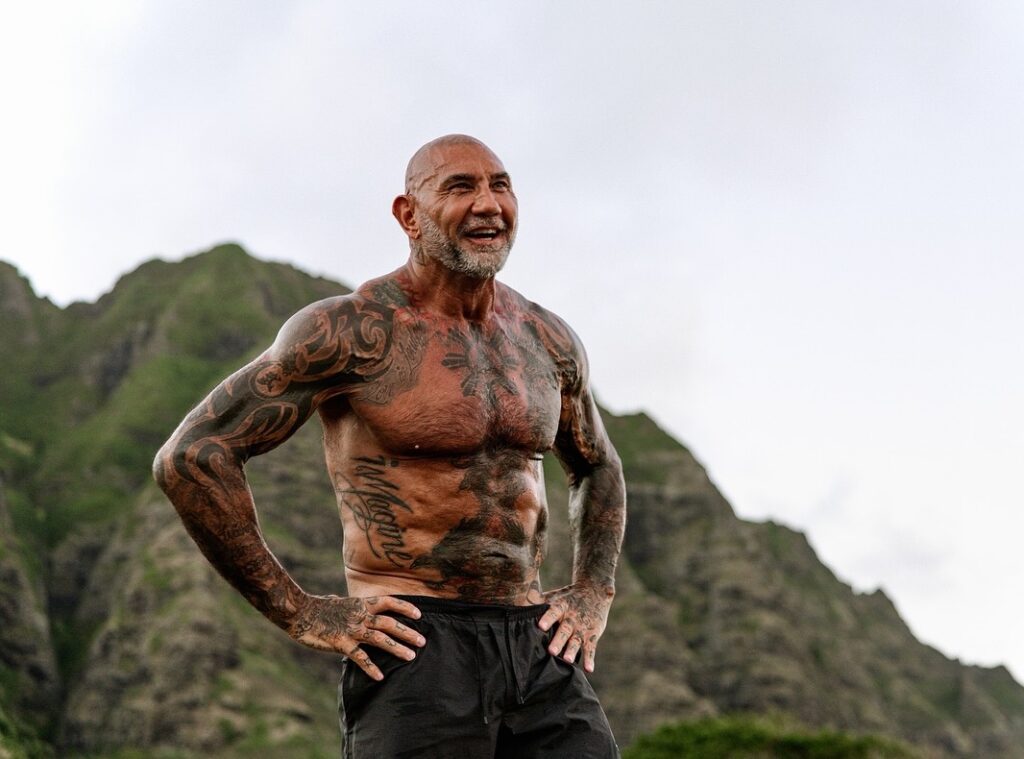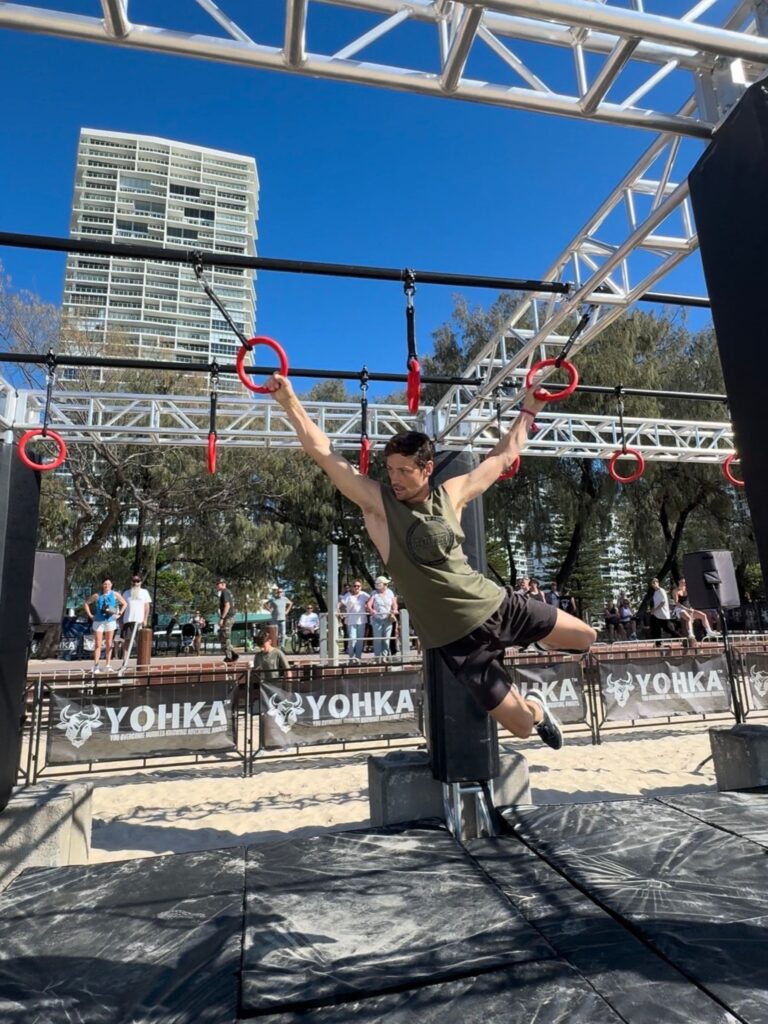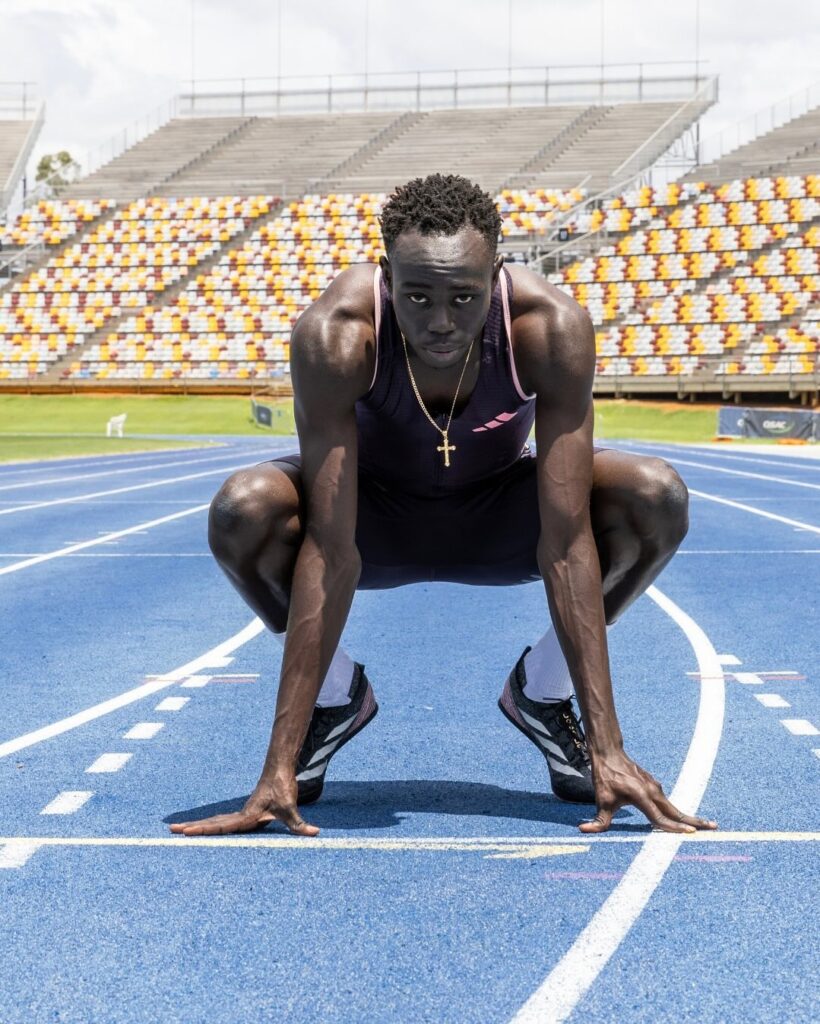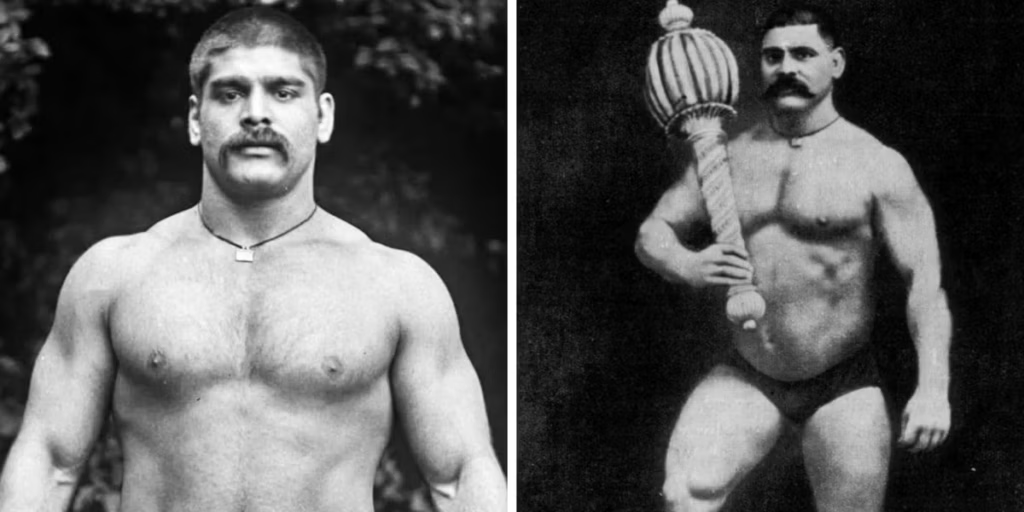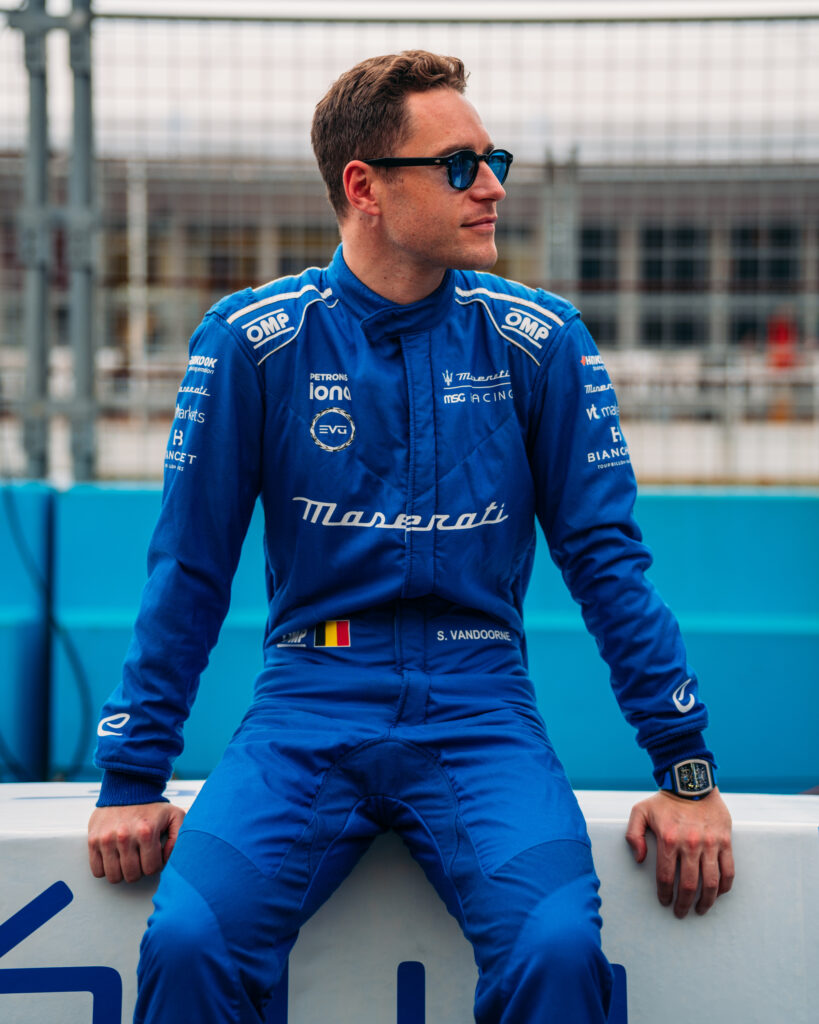THERE WAS A time earlier this year when it looked like Christian Petracca might never play footy again. During Melbourne’s King’s Birthday clash with Collingwood back in June, Petracca suffered a lacerated spleen, four broken ribs and a punctured lung after an on-field collision. The 28-year-old felt the pain immediately and was taken from the field while bearing a grimace. Although he briefly re-entered the game, he was eventually taken to hospital in an ambulance.
After waiting for hours at Epworth hospital, Petracca eventually went under the knife at Alfred hospital, albeit without a general anaesthetic. “Because my blood levels were so low I was only allowed a local anaesthetic. I wasn’t put to sleep,” he tells Men’s Health. “I remember what it was like during the operation in the theatre, which is probably where all the trauma comes from.”
Petracca’s injuries ended his 2024 season, but not his career. When he speaks with Men’s Health it’s mid-December, and after spending the last six months rehabbing, he has returned to training. “It’s crazy to think that was only six months ago considering that I’m feeling really healthy mentally and physically right now,” he says.
“It was a really difficult time and something that when I look back on it, I’m really proud of myself for getting through it,” Petracca continues. “I feel like I’ve started to understand the true definition of resilience. When you lose a part of yourself, you need to learn how to get back to who you are. I’m back completely now.”
The recovery process was gruelling for Petracca. “For the first three months of my rehab I wasn’t supposed to get my heart rate above 110 beats per minute,” he says. That’s because he had a coil on his spleen. If his heart rate got too high, he risked a rebleed. This made training not just difficult, but nearly impossible.
To prevent a disastrous outcome, Petracca kept track of his heart rate on his smart watch. “I was tracking it on the [Samsung] Galaxy watch whenever I was walking or pretty much whenever I moved around the house. It made it really easy,” he says.
After three months of rest, Petracca returned to training in September. He says the process helped him mentally as much as it did physically. “Being around the boys again really helped,” he says. “I spent a lot of time away from the club and getting back into training helped me get back on track. Ever since then I’ve been in a really good headspace and have been able to get back into my routine.”
Petracca also spent time in the offseason in Austria at a high-performance training camp. This is something he’s done for the last four years, but this time around his focus had changed. “My rib and spleen injury affected my core strength and my stability. So we were testing my strength to see where I was at, what needed work and whether my strength was symmetrical,” he says, and he assures us that it is now symmetrical.
As Petracca explains, AFL players only get 12 weeks away from training during the offseason. “It’s really important to use that time off to have a break, because once you’re back, you’re back. There’s no having a break from then on,” he says.
Despite this, he still makes the annual trip to Austria during this 12-week break, for good reason. “Firstly, it’s a change of scenery that allows me to get away from Melbourne and switch off. The second part is from a physical point of view, because the facilities they have over there and the technology they have to help with my injuries is amazing,” Petracca explains. His Samsung tech also allowed him to stay in contact with his club’s training staff while he was away. “I was able to record my sessions on my Galaxy Fold6 and send them back to the high-performance staff at the club.”
This is the second time I’ve interviewed Petracca. During our first chat, which took place in early 2023, we also went over his training routine. At the time, I was taken aback by the intensity of Petracca’s routine and went as far as calling it ‘hardcore’ in the headline of the article I wrote about it. Much has changed since then for Petracca, but to my surprise, his workout regimen has stayed similar despite his extensive injuries.
An average training day for Petracca goes something like this: starting at 7am, he has a massage and physiotherapy treatment, followed by some light plyometrics. Once he’s switched on, he and the rest of the Demons embark on a 10-15km track run (depending on how he feels) with a focus on building endurance and explosive speed. The running complete, the team completes some on-field training before heading to the gym for some strength work. Three days a week, Petracca works on his legs, on one day he targets his upper body. Then he kick-starts his recovery with an ice bath, followed by a session of mobility work and stretching.
In the afternoon, Petracca says that “there’s a bit of autonomy in the program.” Players are free to choose how they spend their time – they can even go home, if that’s their preference, but Petracca isn’t one to leave work early. “Sometimes I’ll do an education session, which is looking at the game plan and working on strategy, or some more recovery, or an extra handball and kicking session,” he says.
This is what Petracca’s routine looks like for four days of the week. Thursday is his only weekday off from training, but he usually will still do something to stay active. The day of our interview is a Thursday, and he tells me that he was at the club earlier doing some recovery work. “It’s pretty full-on,” he says.
On weekends, Petracca is again training with his club. On Saturdays they have an uphill running session all around Melbourne. This is challenging, even for the guys who run more than 10km every training day, and Petracca says it’s “not fun”.
Sundays give Petracca more time for himself, but he still chooses to be active. Usually he’ll head to a yoga studio in his neighbourhood, or – as he is doing increasingly often – he’ll join a Pilates class. “Over the last couple of years, I’ve tried to introduce Pilates into my routine,” he says. “I go to a Pilates studio once a week for 45 minutes with my partner, which is good fun. It’s a different experience, a different challenge. Especially as a guy, you’ve just got to take your ego out of it, which can be brutal.”
When I ask Petracca to elaborate on the male-centric challenges of Pilates, he has an example ready. “I feel like I’m a pretty strong guy, but yesterday there was this girl next to me – she was probably only in year 11 or 12 – and she was doing the same amount of springs on the reformer that I was,” he says. “It was a bit of an ego hit, but I really enjoy that aspect of it where you’re just trying to stay in your lane and focus on what you can control.”

Christian Petracca’s weekly workout routine
Monday:
Physiotherapy
Plyometrics
10-15km run
On-field training
Leg day at the gym
Recovery (ice bath, mobility work, stretching)
Optional education session, more recovery, or extra on-field training
Tuesday:
Physiotherapy
Plyometrics
10-15km run
Upper body day at the gym
Low intensity aerobic exercise, including 40 minutes on an exercise bike
Recovery (ice bath, mobility work, stretching)
Optional education session or more recovery
Wednesday:
Physiotherapy
Plyometrics
10-15km run
On-field training
Leg day at the gym
Recovery (ice bath, mobility work, stretching)
Optional education session, more recovery, or extra on-field training
Thursday:
Rest day
Friday:
Physiotherapy
Plyometrics
10-15km run
On-field training
Leg day at the gym
Recovery (ice bath, mobility work, stretching)
Optional education session, more recovery, or extra on-field training
Saturday:
10km of uphill running
Sunday:
Pilates, yoga or rest.
For all the work he puts into footy, Petracca does ensure he spends adequate time away from the game to switch off. “I’ve seen a direct correlation of my performance on the field with how much work I put into my body with routines, habits and having good food. Doing things like that make me perform better,” he says.
The habits Petracca speaks of centre on mindfulness, with breathwork and music some of his most common sources of escape. “I use a breathing app on my Galaxy watch when I’m sitting in the park or going for a walk. It helps me switch off from footy,” he says. “I love listening to music. I think that counts as a form of mindfulness as well. It helps me escape when I put my Galaxy Buds on.”
Petracca also highlights the importance of footy players having something they enjoy that isn’t footy. “Athletes need to have something away from the game that we can fall back on and we’re really passionate about. The season becomes mentally taxing, so you need something else to do,” he says.
For Petracca, his something away from the game is cooking. In case you’re in some void-like corner of social media and haven’t had Petracca pop up on your feed, you should know that his cooking videos are a big deal on Instagram and TikTok. The footballer has racked up hundreds of thousands of followers who are interested in his content not because he plays for their favourite AFL team, but because he’s a damn good cook.
“It’s really blowing up,” Petracca says of his burgeoning social media audience. “In your 2023 article, you wrote that I had 120,000 followers. Now we’re up to up to 370,000 on TikTok and close to 500,000 on Instagram. It’s mind boggling, but again it’s just another way for me to switch off from footy and have an outlet.”
Petracca’s cooking account (@on.trac5) has more than 2.5 times the amount of followers of his personal account. Such a disparity would suggest he’s now more famous for being a cook than a footballer, and he doesn’t disagree. “They absolutely know me as a cook, which is hilarious,” he says.
On his cooking account, Petracca mainly posts new recipes and his eating experiences. Rarely will he post anything that hints to his day job as one of the best players in the AFL. For all intents and purposes, he appears to be a food influencer to his nearly 500,000 followers, and he doesn’t mind it being that way. Although, when he does post footy-related content, it is usually met with some confusion. “When I was in hospital, I posted something just saying ‘thanks for the support’,” he says. “There were heaps of people commenting ‘what?’, ‘how did he get injured?’ and ‘I didn’t know he played footy’. It was a breath of fresh air to be honest, seeing that not everyone sees me as a footy player.”
After enduring what can only be regarded as a difficult year in 2024, Petracca’s mindset has changed. “I’ve always tried to be really present in the moment and appreciative, but I think it’s not until we have something that’s as serious as what I had that you can look at your life and go ‘wow, I’m so lucky to live the life I do’,” he says.
“I’m really grateful to be back training and playing. It’s something that – as a footy player – you take for granted sometimes,” Petracca continues. “Like, I literally get paid to kick a footy and lift weights. That experience made me realise how lucky I am to be able to do what I’m passionate about for a job.”
On an individual level, Petracca is trying not to put too much pressure on himself. In the past, he’s been expected to put in a man of the match performance every time he takes to the field, but his newfound perspective has shifted his ambition. “I’m not putting any expectations on myself. Maybe if you ask me again after round one I might have a different answer, but for now I’m just happy to be getting back out there,” he says.
Instead, he’s putting all his effort into helping his team play as best as they can. “I play a team sport, and the ultimate goal will always be winning another premiership.”









